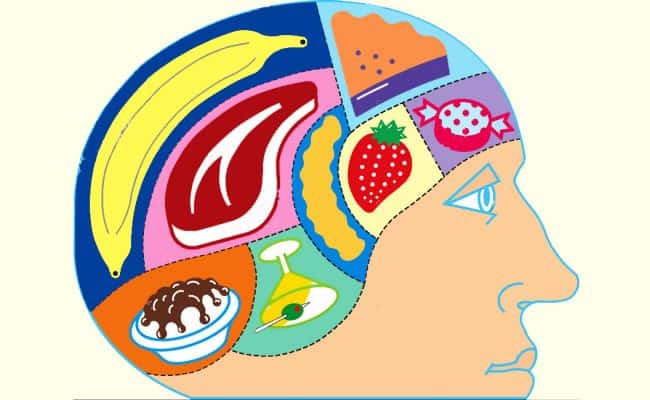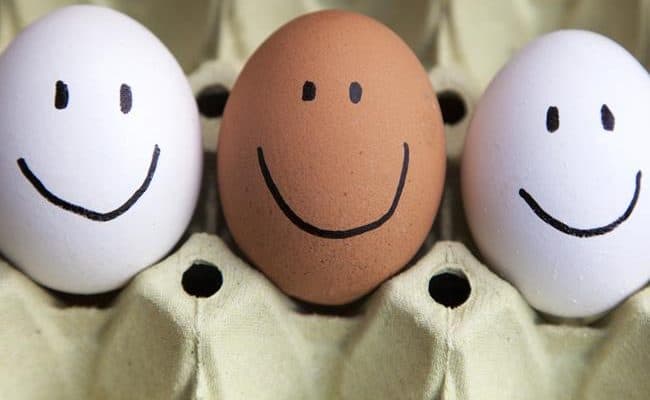
When following a weight loss diet, many people find that they can stick to a lower calorie healthy eating plan throughout the day with little difficulty. However, when it comes to the evening they struggle to keep up the good work and may even undo all the efforts of the day by consuming a huge amount of calories and sabotaging their weight loss progress, often without even realising that they are doing so.
Here we will look at why evening eating can be the downfall of a healthy weight loss diet and what can be done to avoid this sabotage and keep weight loss on track.
Will eating in the evening cause weight gain?
A common misconception is that eating in the evening or after a certain time is more likely to result in weight gain, with many believing that when you sleep shortly after consuming the food you do not burn the calories. This is fact is not the case.
The body is exceptionally well evolved and treats food in the same manner whether it is eaten morning, noon or night. The key to weight loss is not when you consume the calories, but how many calories you are consuming. If you are taking in less calories than you are burning through physical activity and daily activities, you will lose weight. If you consume more then you will gain.
For this reason, eating in the evening need not cause weight gain. However, if you are consuming excess calories at this time of day that are excess to those you are burning, then evening eating may be a problem when trying to achieve weight loss.
Why can the evening be a difficult time to eat healthily?
The evening is an especially difficult time to continue to follow a healthy diet or to restrict eating. For most people the evening is a time to relax, unwind and switch off after a busy day at work and this relaxed state of mind can easily lead to over eating out of boredom, for comfort or to reward yourself for working hard all day.
During the day when we are busy, we are less focussed on food, with many people squeezing in a quick lunch break or eating on the go before moving onto the next task. However, in the evening the more relaxed state can lead us to eat more, snack mindlessly and make repeated trips to the fridge to nibble on something extra.
Some of the main reasons people overeat or eat the wrong types of food in the evening are:
When you are relaxing by watching TV or reading a book after a hard day’s work it is easy and satisfying to snack on unhealthy and high calorie foods and drinks such as potato chips, nuts, other salty snacks, chocolate or candy, all of which tend to have addictive qualities making it hard to stop at a small amount.
Many people develop habits where they grab a packet, sit down on the sofa and don’t move for a couple of hours. Unfortunately if this type of eating becomes a habit it will add necessary calories to your diet and is likely to lead to weight gain, no matter how strict you are during the day.
Rewarding yourself
For many a difficult or tiring day at work deserves a reward when you finally make it home. If this reward is food related it is not likely to be a piece of fruit or a nice salad. Usually these little treats take the form of a glass (or bottle!) of wine, chocolate or a tub of ice cream. If this is an occasional occurrence it shouldn’t impede weight loss too much, however if you are constantly stressed the calories can quickly add up.
Boredom
If you are watching a not so good TV show or mindlessly surfing the internet in the evenings boredom often kicks in. This can lead to frequent trips to the cupboard simply as something to do.
Enjoyment of food
For some people food is a love rather than a requirement to survive and the evening may be the only time they get the chance to prepare and enjoy a good meal in a stress free environment. Often the types of food chosen are those that taste the best rather than the healthiest options and large portion sizes may be consumed simply due to this enjoyment and satisfaction.
Being influenced by others around you
In the evening it is often the case that the whole family is in the house together and if one person has a packet of potato chips open it can be hard for other family members to resist joining them.
Hunger
Many people overeat in the evening due to extreme hunger when they get home from work. This can also lead to choosing unhealthy options as the main aim is to get food fast. This is particularly common in people who follow very restrictive diets during the day or skip meals.
Tiredness
A lack of energy when you get home in the evening can lead to poor choices being made. Many people will grab the quickest and easiest food, which is not necessarily the most diet friendly option and can add extra calories.
How to combat evening eating
If you are someone who overeats or eats the wrong type of foods during the evening here are some tips to help avoid this downfall and get your weight loss back on track.
Occupy your hands with something
Doing something with your hands whilst watching TV or doing some other mindless activity is a good way to stop yourself reaching for snacks. Knitting, sketching, sewing, ironing or even using a computer keep your hands occupied and away from the food.
Sip low calorie drinks
This gives your mouth something to do, so you are less likely to fill it with food. Choose herbal teas, low calorie soft drinks or water for the most diet friendly option. This also helps to avoid dehydration which is often misinterpreted as hunger.
Don’t skip meals during the day
If you skip meals you are likely to be extremely hungry by the evening which may cause you to overeat. To avoid this eat every few hours, including a healthy snack as well as three meals a day if you feel you need it.
Stock the house with healthy choices
If your fridge and cupboard are only filled with healthy foods there is no temptation to go for unhealthy options instead. At the very least hide unhealthy foods up high and out of sight so you see the healthier options first.
Choose healthier snacks
By choosing healthier evening snack options you can save a lot of calories. Choose air popped plain popcorn over chips or slated snacks and fresh fruit or low fat yogurt as a sweet treat. If you do snack in the evenings, never take to whole packet of food with you. Portion out the amount you want to eat and put the rest away for later, this will help you eat less.
Get help from the other people in the house
Try to get other members of the household to respect your need for a healthy diet and ask that they avoid eating unhealthy foods in front of you where possible. If you can get a friend or family member to join you in your healthy eating regime and offer moral support, even better.
Plan meals ahead
When you have a bit of extra time, plan and cook healthy meals for an entire week. Things such as vegetable packed stews and soups can be frozen in portions and defrosted for a quick easy meal in the week when you are tired and have less time.
Learn more about healthy cooking
Remember, tasty food does not have to be unhealthy, so do some research on new recipes and ingredients and satisfy your inner foodie whilst still losing weight.
How to deal with evening hunger
If you find you are very hungry in the evening it may be more difficult to eat less or control your eating. To avoid this eat sufficient healthy meals during the day and add an afternoon snack if you need it.
Also make sure you are well hydrated as dehydration can often be mistaken for hunger. If you are still hungry or find you wake up in the night hungry, add an extra snack in the evenings, but make sure it is a healthy one that is not too high in calories.
A piece of wholegrain toast with a low fat spread or cottage cheese, a hardboiled egg, vegetables with humus dip, fresh fruit and low fat yogurt all make a nutritious night time snack that won’t add too many calories.










